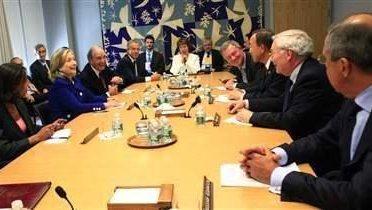Executive Summary
It has been ten years since the four most powerful players in the Middle East peace process—the United States, the European Union, Russia, and the United Nations—came together under the diplomatic umbrella known as the Quartet. Formed in response to outbreak of the Second Intifada in late 2000 and the collapse of peace negotiations a few months later, the Quartet appeared ideally suited for dealing with the seemingly intractable conflict between Israelis and Palestinians. Its small but powerful membership allowed it to act swiftly and decisively, while its informal structure gave it the flexibility needed to navigate crises and adapt to changing developments on the ground.
Yet, despite the high expectations that accompanied its formation, and some modest success early on, the Quartet has little to show for its decadelong involvement in the peace process. Israelis and Palestinians are no closer to resolving the conflict, and in the few instances in which political negotiations did take place, the Quartet’s role was usually relegated to that of a political bystander. Meanwhile, the Quartet has failed to keep pace with the dramatic changes that have occurred in the conflict and the region in recent years, particularly since the advent of the Arab Awakening. Having spent most of the last three years in a state of near paralysis, and having failed to dissuade the Palestinians from seeking UN membership and recognition in September 2011, the Quartet has finally reached the limits of its utility
The Brookings Institution is committed to quality, independence, and impact.
We are supported by a diverse array of funders. In line with our values and policies, each Brookings publication represents the sole views of its author(s).




